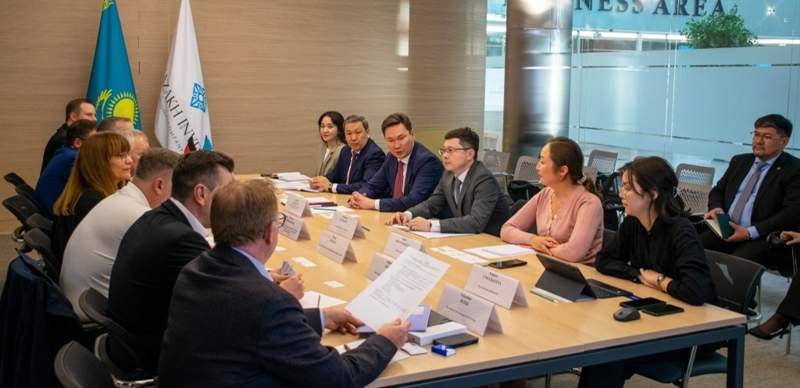German and Swiss companies show interest in Kazakhstan's mechanical engineering

Kazakh Invest Chairman Yerzhan Yelekeyev presented the trade and investment potential of the machine-building industry of Kazakhstan to German and Swiss businesses, who visited Kazakhstan this week, Kazinform News Agency correspondent reports, citing the company’s press service.
He invited the companies to implement joint projects in Kazakhstan.
Among the participants were companies such as Gebr. Heller Maschinenfabrik and WTO Werkzeug-Einrichtungen, world leaders in machine tool construction. Gebr. Heller specializes in milling machines and production systems, while WTO Werkzeug-Einrichtungen supplies tools for turning centers.
Paul Horn, known for its tools for processing machine tool products, and ZIEHL-ABEGG SE, a provider of ventilation and air conditioning technologies, also joined the dialogue. LNS Group, renowned for the automation of feed and removal of raw materials, and HERMLE AG, leading manufacturer of machine tools and machining centers, added their expertise to the table.

The German-Eurasian Economic Union serves as a facilitator, fostering direct exchanges and fostering economic ties between Germany and the countries of Eurasia.
During their stay in Kazakhstan, company delegates will participate in the international exhibition Kazakhstan Machinery Fair—2024 to meet potential Kazakh partners and hold meetings with representatives of the public and private sectors.
"Despite the growth in production volumes, there remains a high import dependence in the engineering sector. Thus, importing goods to Kazakhstan last year amounted to about $50 billion. Of these, imports of machine-building products amounted to $20 billion, or more than 40% of the total imports of processed goods in Kazakhstan. It is also important that, due to the low localization of several machine-building industries, large volumes of imports are supplemented by products of components for subsequent assembly at domestic production facilities. This represents a huge untapped potential for domestic production and import substitution," Yelekeyev says.
Following the meeting, the parties agreed to strengthen investment cooperation.

